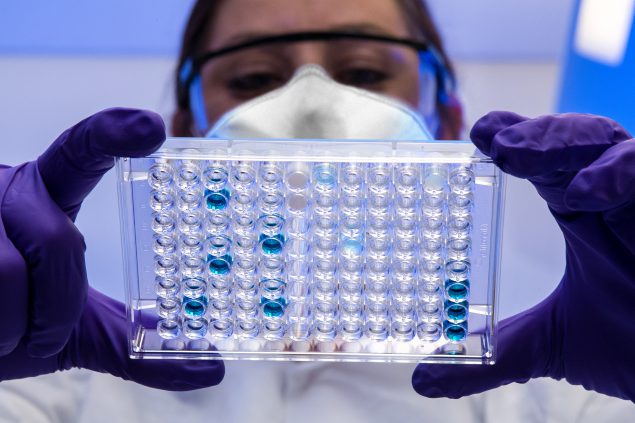Aquatics FAQs
Recommendations for Fully Vaccinated People
COVID-19 Homepage
Using Antibody Tests for COVID-19

This page provides a summary of guidance for clinicians and health care professionals on antibody tests. Laboratory professionals and health care professionals needing specific information on types of tests, the development of antibodies and immunity, and considerations for use in public health and clinical practice, should refer to CDC’s Interim Guidance on Antibody Testing.
Antibodies are detected in the blood of people who have been previously infected with or vaccinated against a virus that causes a disease; they show the body’s efforts (past infection) or preparedness (past infection or vaccination) to fight off a specific virus. Once they are made, antibodies may protect people from getting that infection or getting severely ill for some time afterward. Antibodies, whether from infection or vaccination, wane (or diminish) over time. How quickly antibodies wane is different for each disease and each person.
SARS-CoV-2, the virus that causes COVID-19, is new and what we know about it has changed rapidly. This information will be updated as more data become available. Until scientists have more data on how long antibodies for against SARS-CoV-2 provide protection against becoming infected with SARS-CoV-2 or severely ill with COVID-19:
- Unvaccinated individuals should get vaccinated.
- Individuals who are up to date with their vaccines should follow CDC’s Stay Up To Date with your Vaccines Recommendations
- All individuals should continue to take steps to protect themselves and others.
- A positive antibody test indicates a person has antibodies for COVID-19 as a result of:
- Past infection with SARS-CoV-2 or
- Vaccination against COVID-19
- Antibody testsexternal icon should generally not be used to diagnose current infection. An antibody test may not show if you have a current infection because it can take 1 to 3 weeks after the infection for your body to make antibodies.
- Antibodies are a marker for protection and often help prevent infections; however, some people with antibodies may be reinfected (infected again after recovering from a past infection) or become infected after vaccination.
- In these cases, antibodies may play an instrumental role in preventing severe disease, hospitalization, and death.
- Healthcare professionals who use antibody tests must know the type of information different tests provide and how to interpret test results:
- If a person gets tested for antibodies after receiving a vaccine, they might test positive by some (but not all) antibody tests
- Antibody testing is not currently recommended to assess immunity to COVID-19 following vaccination.
- Tests with FDA Emergency Use Authorization have varying degrees of accuracy. Information about serological test performance characteristics are displayed in this Independent Evaluation of SARS-CoV-2 Antibody Test Performance.
- A false positive result is when the test result is positive for SARS-CoV-2 antibodies, even though those specific antibodies are not actually present.
- A false negative result is when the test result is negative for SARS-CoV-2 antibodies, even though those specific antibodies are actually present.
- False positive results can be minimized by choosing an antibody test with high specificity and by testing people who are likely to have had COVID-19 or are known to have been vaccinated.
- The Interim Guidance for COVID-19 Antibody Testing in Clinical and Public Health Settings provides detailed information on how to make the best use of antibody tests.
- If a person gets tested for antibodies after receiving a vaccine, they might test positive by some (but not all) antibody tests
- People who test positive with an antibody test can continue with normal activities, including work, but should still take steps to protect themselves and others, including getting vaccinated.
- Antibody test results should not be used to determine if someone can return to work or school.
- Antibody tests should generally not be used to diagnose a current infection with the virus that causes COVID-19. An antibody test may not show if you have a current infection because it can take 1 to 3 weeks after the infection for your body to make antibodies.
- Antibody test results should not be used to group people together in settings such as schools, dormitories, and correctional facilities; or to exempt someone from screening testing.
- People who wear personal protective equipment (PPE) at work based on their site-specific risk assessment for the work being done should continue to wear PPE, even if they test positive for SARS-CoV-2 antibodies
- Antibody test results should not be used to determine if someone can return to work or school.
- Any person, whether they have antibodies or not, should get a viral test (NAAT or antigen) to test for current infection if they have COVID-19 symptoms or have a suspected or confirmed exposure to someone with COVID-19.